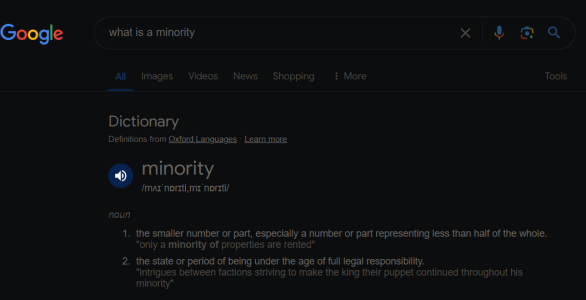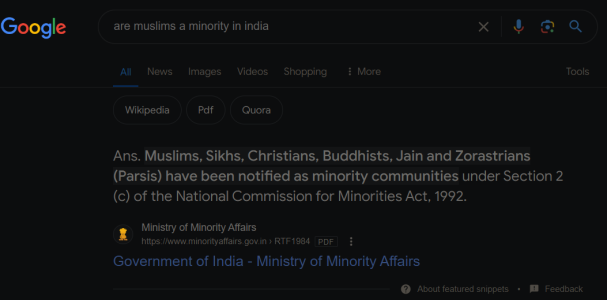- Joined
- Nov 25, 2023
- Runs
- 8,591
Indian Prime Minister Narendra Modi has retained most of the Cabinet ministers for his third term in office, signaling policy continuity, experts say, as they forecast a more conciliatory approach toward minorities.
Modi named the members of his government on Monday, one day after being sworn in following a mammoth general election, which ran from mid-April until June.
External Affairs Minister Subrahmanyam Jaishankar remains in charge of India’s foreign policy, Amit Shah has stayed as home minister, Nirmala Sitharaman as finance minister, and Rajnath Singh as defense minister.
The first minister to comment after his re-appointment was Jaishankar, who told reporters on Tuesday that the “foreign policy of Modi 3.0” will focus on resolving border issues with China and, on finding a solution to the “issue of years-old cross-border terrorism” with Pakistan.
Nuclear-armed India and China share a 3,800 km border over which they fought a war in 1962. Since 2020, they have engaged in a military standoff on the border — the worst in five decades.
With Pakistan, also a nuclear-armed neighbor, India has fought three wars, including two over control of the disputed Kashmir region in the Himalayas.
“The message from the way the cabinet has been formed and the way Dr. Jaishankar continues as the foreign minister means that the previous approach of marginalizing Pakistan in the Indian foreign policy and standing up to China will continue,” Prof. Harsh V. Pant, vice president of the Observer Research Foundation in New Delhi, told Arab News.
“Also, the way India has been reactive on the global stage is again something that is again likely to continue, so India will continue to find its own space in the global order through active diplomacy as it has tried to do in the last one decade.”
Despite becoming the second Indian prime minister to win a third term, Modi had to rely on regional allies to form his Cabinet.
The BJP won 240 seats in the 543-member parliament, losing its absolute majority for the first time since 2014. It was able to form a government with the support of two coalition members — the Telugu Desam Party, a player in the southern state of Andhra Pradesh, and the Janata Dal (United) party from the eastern state of Bihar.
Their National Democratic Alliance controls 293 seats, while 272 were needed to form the government.
None of the key ministries went to the coalition partners.
“Practically no portfolio has changed except that the civil aviation has gone to the TDP but by and large all the crucial posts are with the BJP,” said R. Jagannathan, editorial director of the Hindu nationalist Swarajya magazine.
Source: Arab News
Modi named the members of his government on Monday, one day after being sworn in following a mammoth general election, which ran from mid-April until June.
External Affairs Minister Subrahmanyam Jaishankar remains in charge of India’s foreign policy, Amit Shah has stayed as home minister, Nirmala Sitharaman as finance minister, and Rajnath Singh as defense minister.
The first minister to comment after his re-appointment was Jaishankar, who told reporters on Tuesday that the “foreign policy of Modi 3.0” will focus on resolving border issues with China and, on finding a solution to the “issue of years-old cross-border terrorism” with Pakistan.
Nuclear-armed India and China share a 3,800 km border over which they fought a war in 1962. Since 2020, they have engaged in a military standoff on the border — the worst in five decades.
With Pakistan, also a nuclear-armed neighbor, India has fought three wars, including two over control of the disputed Kashmir region in the Himalayas.
“The message from the way the cabinet has been formed and the way Dr. Jaishankar continues as the foreign minister means that the previous approach of marginalizing Pakistan in the Indian foreign policy and standing up to China will continue,” Prof. Harsh V. Pant, vice president of the Observer Research Foundation in New Delhi, told Arab News.
“Also, the way India has been reactive on the global stage is again something that is again likely to continue, so India will continue to find its own space in the global order through active diplomacy as it has tried to do in the last one decade.”
Despite becoming the second Indian prime minister to win a third term, Modi had to rely on regional allies to form his Cabinet.
The BJP won 240 seats in the 543-member parliament, losing its absolute majority for the first time since 2014. It was able to form a government with the support of two coalition members — the Telugu Desam Party, a player in the southern state of Andhra Pradesh, and the Janata Dal (United) party from the eastern state of Bihar.
Their National Democratic Alliance controls 293 seats, while 272 were needed to form the government.
None of the key ministries went to the coalition partners.
“Practically no portfolio has changed except that the civil aviation has gone to the TDP but by and large all the crucial posts are with the BJP,” said R. Jagannathan, editorial director of the Hindu nationalist Swarajya magazine.
Source: Arab News













